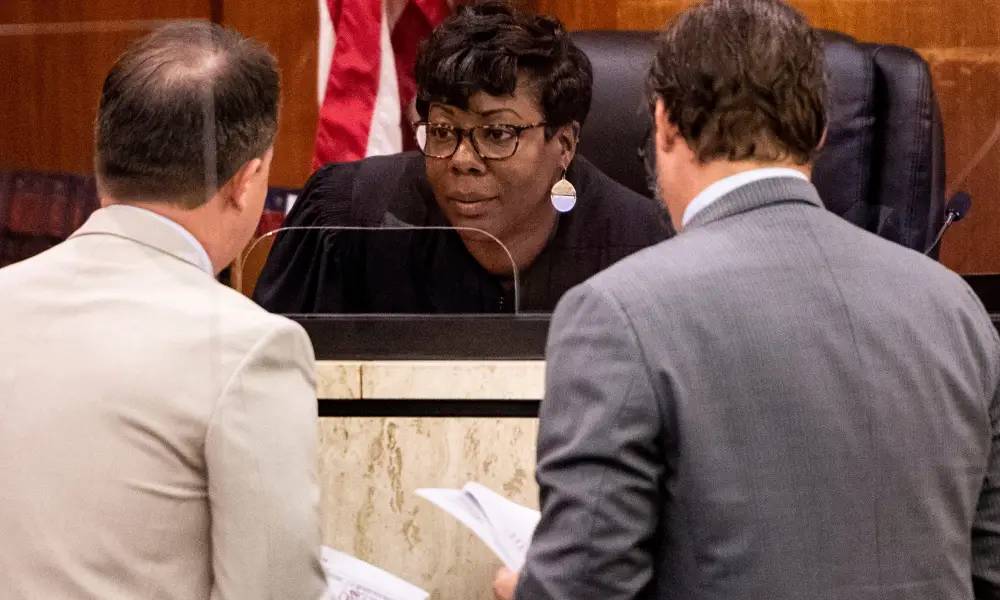Judicial
South Carolina Judge rules firing squad and electric chair executions are unconstitutional

A judge in South Carolina has ruled executions by both the electric chair and the firing squad are unconstitutional.
The ruling came after lawyers for four inmates in South Carolina took legal action against the state, arguing that prisoners would feel terrible pain whether their bodies were “cooking” by electricity or when their heart was stopped by a marksman’s bullet, assuming the bullet hit the correct organ.
Judge Jocelyn Newman agreed and said that both methods amount to “torture.” Newman wrote in her ruling that the lethal injection was the least severe and should be the go-to method for any inmates who are sentenced to death.
“Lethal injection is the least severe of the three statutorily authorized punishments, and the amended statute effectively revokes that lesser punishment. When Plaintiffs committed their crimes and received their death sentences, the default method of execution was lethal injection, which is according to the Supreme Court of the United States is believed to be the most humane (execution method) available,” Newman wrote, per UPI.
Newman stated that a firing squad is unconstitutional partly because it is “a reversion to a historic method of execution that has never before been used” by South Carolina and is not used in an overwhelming majority of states.
The electric chair, Newman wrote, is unconstitutional because no evidence has proven its high-voltage death is instantaneous and, if so, an inmate “will experience intolerable pain and suffering from electrical burns, thermal heating, oxygen deprivation, muscle tetany, and the experience of high voltage electrocution.”
The Governor of South Carolina, Republican Henry McMaster, has already said that he plans to appeal the decision.
“There have been a lot of cases in the U.S. Supreme Court as well. It’s been explained by the justices a number of times. The question is not the method but the procedure to get to the method,” McMaster said. “… Our Legislature and others have done a good job in fashioning the best we can do for these sentences. I think that our South Carolina law is constitutional.”
Attorneys for the death row inmates who sued over the execution methods said Tuesday they are “very pleased with the result” and are reviewing the court order.
South Carolina has carried out 284 executions since 1912, however they only started executing people by lethal injection in 1995. Since then, only three people have been put to death by the lethal injection. The last person to be executed was 11 years ago.
Terry A. Hurlbut has been a student of politics, philosophy, and science for more than 35 years. He is a graduate of Yale College and has served as a physician-level laboratory administrator in a 250-bed community hospital. He also is a serious student of the Bible, is conversant in its two primary original languages, and has followed the creation-science movement closely since 1993.
-

 Civilization2 days ago
Civilization2 days agoWhy Europe Shouldn’t Be Upset at Trump’s Venezuelan Actions
-

 Accountability4 days ago
Accountability4 days agoWaste of the Day: Principal Bought Lobster with School Funds
-

 Executive3 days ago
Executive3 days agoHow Relaxed COVID-Era Rules Fueled Minnesota’s Biggest Scam
-

 Constitution4 days ago
Constitution4 days agoTrump, Canada, and the Constitutional Problem Beneath the Bridge
-

 Christianity Today2 days ago
Christianity Today2 days agoSurprising Revival: Gen Z Men & Highly Educated Lead Return to Religion
-

 Civilization3 days ago
Civilization3 days agoThe End of Purple States and Competitive Districts
-

 Executive2 days ago
Executive2 days agoWaste of the Day: Can You Hear Me Now?
-

 Executive3 days ago
Executive3 days agoWaste of the Day: States Spent Welfare in “Crazy Ways”


